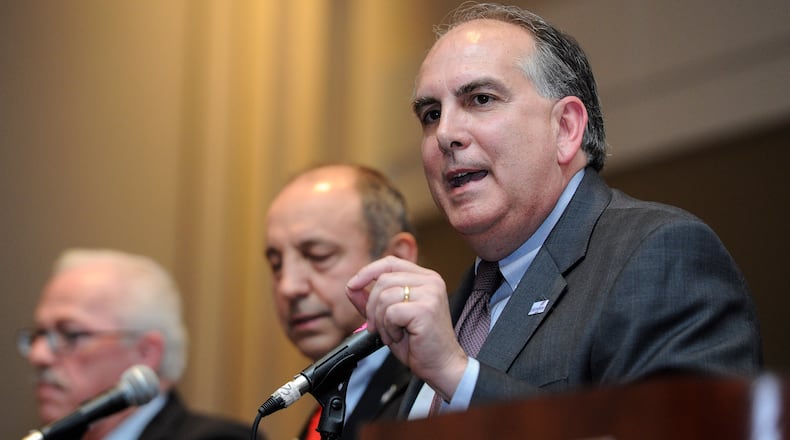During his tenure in the General Assembly, Edward Lindsey proved himself one of the body's more thoughtful members, which is perhaps what handicapped him as a Republican candidate for Congress last year.
The Atlanta attorney is free to speak his mind now, and was present at the Atlanta Press Club on Thursday when House Speaker David Ralston unburdened himself – unloading on a certain talk radio host in the process – on the topic of S.B. 129, the "religious liberty" bill now before the House Judiciary Committee.
The bill is to get its first subcommittee airing this week, and in an emailed newsletter he has kept going despite his departure from the Legislature, Lindsey offers a solution that might be the beginning of a compromise. First, he makes these points that have sometimes been dismissed by other Republicans:
However, we cannot ignore others who have marched to our Capitol in support of this legislation and have clearly indicated their hatred – yes, hatred -- for gays and lesbians and others in the LGBT community, and their intention to use this legislation to try to discriminate against these fellow citizens. This cannot be allowed to happen. Not in the 21st Century. Not in our state. Not in my Lord and Savior's name.
Furthermore, as a lawyer who began his career as a Special Assistant Attorney General handling child abuse cases and a former member of the Georgia Family Violence Commission, I am concerned that this bill will be wrongfully twisted by those perpetrating child abuse and family violence as a defense in court to justify their actions.
So, what can be done? To borrow from Isaiah 1:18: "Come now, let us reason together."
That’s the Bible verse cited by Ralston during his APC speech. Probably not a coincidence. But here’s Lindsey’s pitch for a fix:
The first additional exception should expressly bar the application of the law against any present of future civil rights law or local ordinance protecting citizens against discrimination. Texas, for instance, already recognizes this exception in its Religious Freedom and Restoration Act. The second exception should bar the use of the statute as a defense in cases involving allegations of child abuse or family violence.
These two additional exceptions will allow the advocates of the proposed Georgia Religious Freedom Restoration Act to afford Georgia citizens the same protections contained in federal law and guaranteed to citizens in 19 other states, while at the same time insuring that the law will not be manipulated and misused to try and discriminate or provide a shield to those who would do violence against vulnerable members of our society.
Call it a hunch, but this looks like the direction that House members could be taking next week.
About the Author
The Latest
Featured



